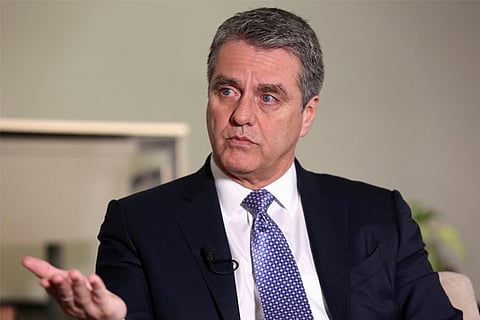

Geneva
The head of the World Trade Organisation said Tuesday that he intends to put new issues "on the table" in negotiations to save the body's appeals court, which shuts down at midnight.
The appellate branch of the WTO's Dispute Settlement Body, sometimes called the supreme court of world trade, will stop functioning on Wednesday after years of relentless US opposition.
Washington, which accuses the court of serious overreach, has blocked the appointment of new judges, leaving it without the quorum of three needed to hear cases due to mandatory retirements.
Months of talks to break the deadlock that has pitted the US against the WTO's 163 other members have been led by New Zealand's ambassador David Walker.
WTO Director General Roberto Azevedo reaffirmed Wednesday that the Walker process had failed, saying: "as of tomorrow, the appellate body will no longer be able to review new dispute rulings." Azevedo had on Tuesday announced plans to personally lead negotiations to solve the impasse.
Speaking to reporters on Wednesday, he said his effort would aim to address the "missing pieces of the puzzle" that the Walker process had missed.
"Throughout this process I tried not to interfere," he said.
"I decided that (members) should do their thing. Unfortunately, it was not successful." But, Azevedo added, his discussions with diplomats led him to believe that the Walker-led talks did not tackle all the elements needed to allay US concerns.
The goal is to see whether "there are some things that are not on the table that need to be on the table," Azevedo said.
The US has wide-ranging concerns about the WTO appellate branch, which predate Donald Trump's presidency.
Trump's trade officials have in particular argued that the US Constitution does not permit a foreign court to supersede an American one -- and that WTO appellate judges assert such superiority in international trade law.
Until a solution is reached, the appellate branch shut down will place international trade disputes in legal limbo.
But countries will still be able to file grievances and can bilaterally agree to range of measures to avoid uncertainty -- including waiving the right of appeal or taking the case through an ad hoc arbitration process.
Visit news.dtnext.in to explore our interactive epaper!
Download the DT Next app for more exciting features!
Click here for iOS
Click here for Android